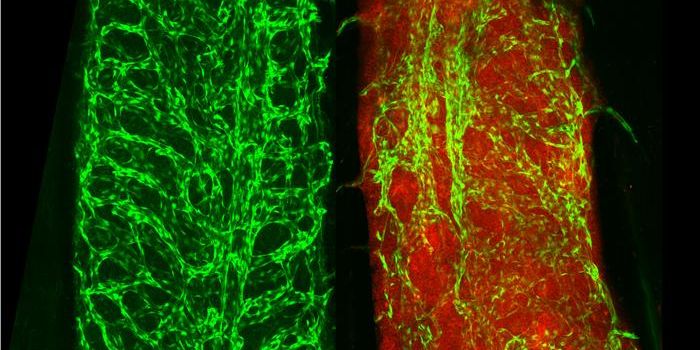New Therapy Starves Pancreatic Cancer Cells of an Important Amino Acid
The increased incidence rate of pancreatic ductal adenocarcinoma (PDAC), along with its highly aggressive nature and poor prognosis, warrants the immediate need for new therapies.
One approach for developing PDAC therapeutic interventions has involved targeting the tumor’s metabolic pathways. However, the efficacy and feasibility of these applications remain limited due in part to the ability of tumors to adapt to metabolic changes. Further, prior therapeutic attempts to target metabolic pathways have resulted in significant toxicities to healthy tissue.
A recent study published in Nature has identified a novel metabolic target that could help combat PDAC growth. The study focuses on the metabolic pathway used for the synthesis of the amino acid ornithine. Found in meat, fish, and dairy products, ornithine plays a role in liver function and detoxification. As a critical molecule in the urea cycle, ornithine helps remove nitrogen from the body.
PDAC cells generate ornithine using another amino acid called arginine. The study shows that the PDAC tumor microenvironment (TME) lacks sufficient arginine for de novo synthesis and instead uses arginine to generate ornithine. Thus, PDAC cells depend on an alternative pathway of “do novo synthesis,” to make ornithine.
The process of de novo synthesis generates ornithine from glutamine. While used in infancy, OAT has no essential role in most healthy adult tissues. Thus, the researchers hypothesized targeting OAT would direct therapies to PDAC cells, thereby reducing the toxicity to healthy tissues.
To these the feasibility of targeting OAT for treating PDAC, the researchers used an OAT-inhibiting drug (5-FMO). Treatment of PDAC cells with 5-FMO resulted in the inhibition of tumor growth. The researchers also observed tumor inhibition in mice lacking OAT after genetic deletion. Further, the researchers demonstrated that chemotherapy in combination with 5-FMO generated an additive therapeutic effect.
By depleting the tumor of OAT, the researchers essentially starve the cancer cells of ornithine, which leads to the inhibition of cancer growth. Based on their data, the authors suggest that OAT inhibitors present a new strategy for treating pancreatic cancer patients. This study prompts additional research and clinical trials to test the full efficacy, safety, and feasibility of using OAT as a therapeutic target.
Sources: Rad Oncol, Nat Rev Gastroenterol Hepatol, Nature Revs Cancer, Nature, Biology









